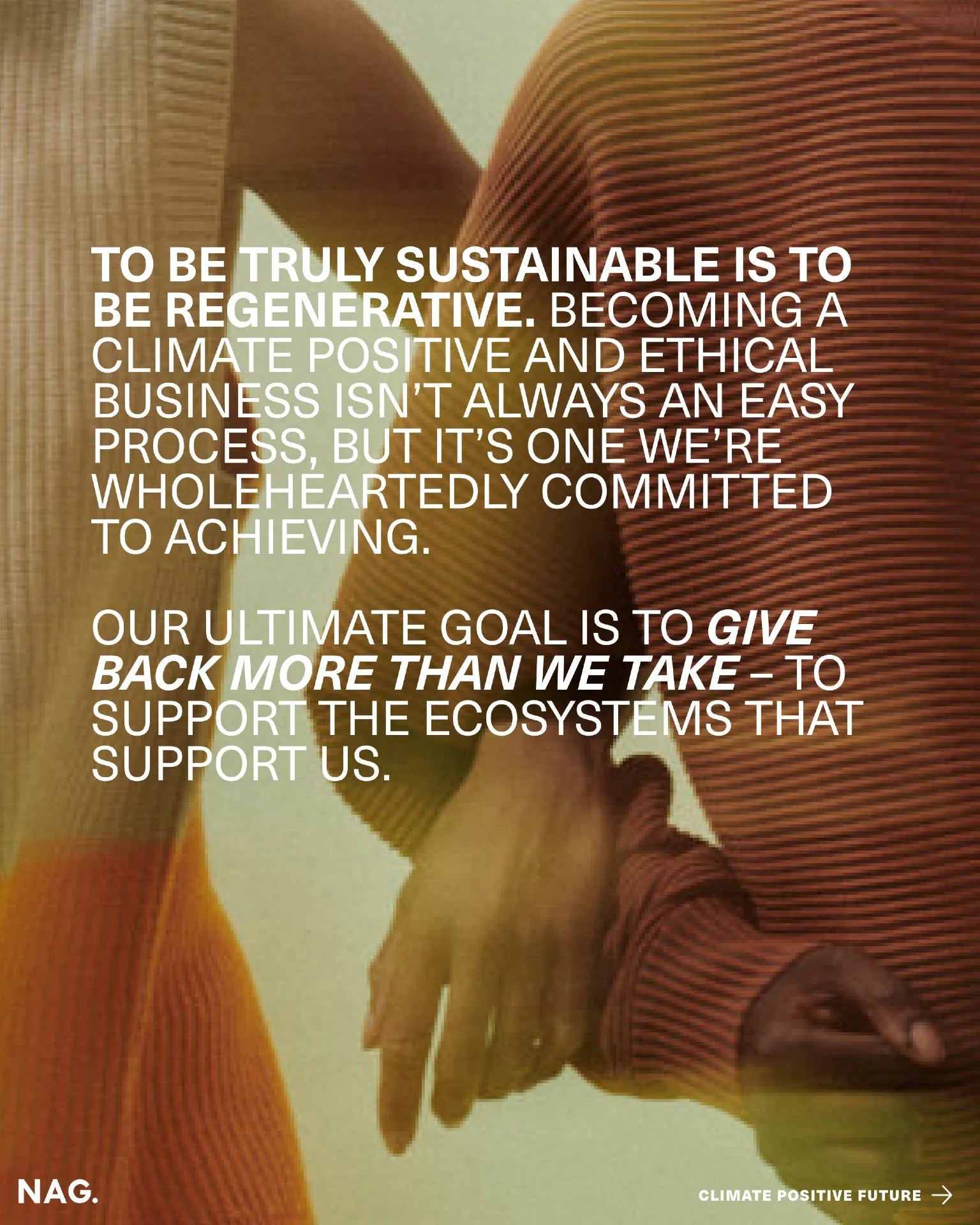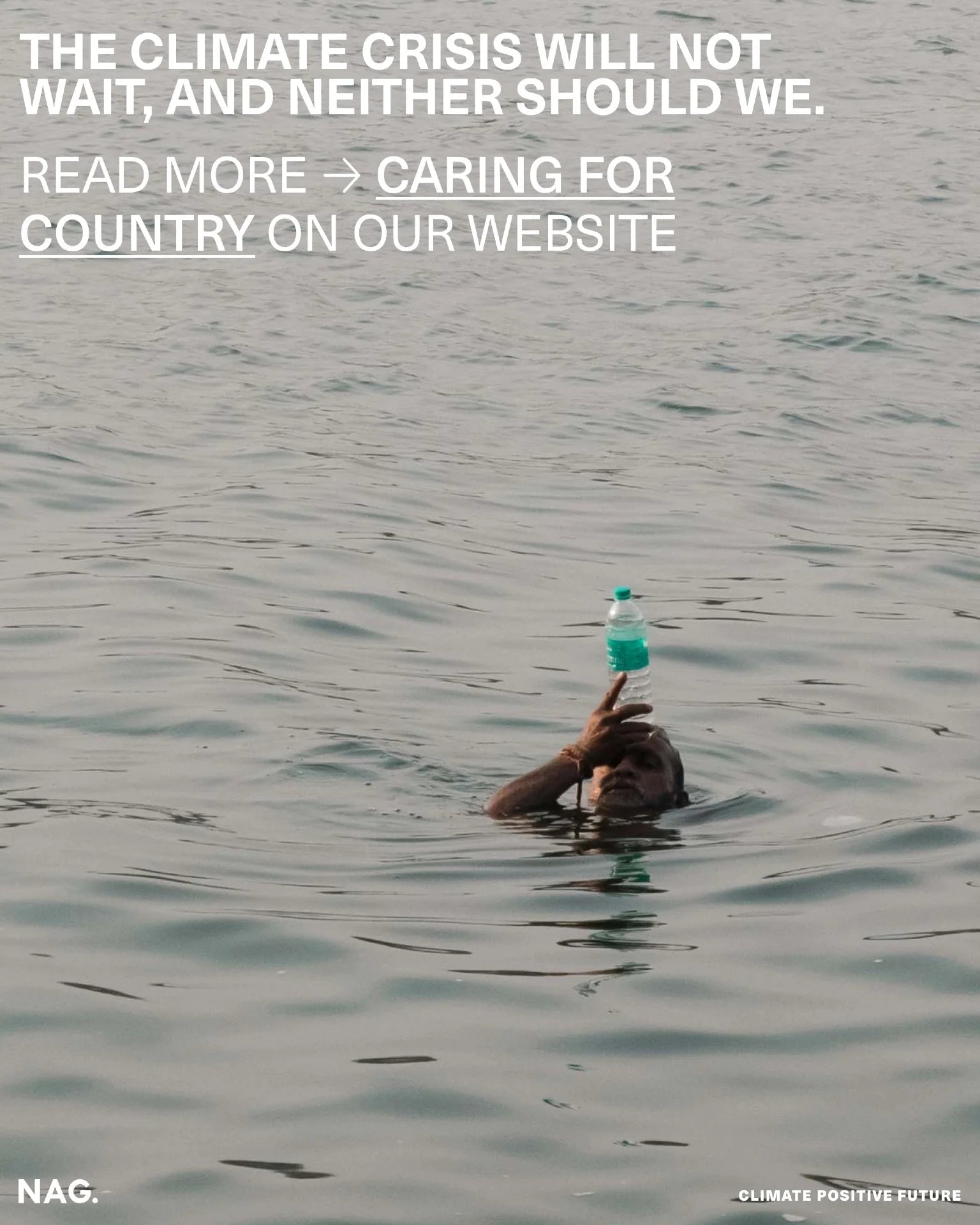A CLIMATE POSITIVE FUTURE
We are proud to announce Nagnata is the first Australian fashion brand to become a certified Toitū Climate Positive business.
This means we offset more GHG emissions than we emit and have been recognised for our philanthropic efforts alongside our work in environmentalism.
The Toitū Climate Positive programme extends beyond carbon neutrality to also make a positive impact on the environment and society. The impact is felt through the combination of calculating, managing and reducing emissions in line with science-based reduction targets, engaging with the value chain to accelerate decarbonisation to compensate beyond carbon neutrality by at least offsetting 125% for carbon emissions and contributing to broader social and environmental outcomes.
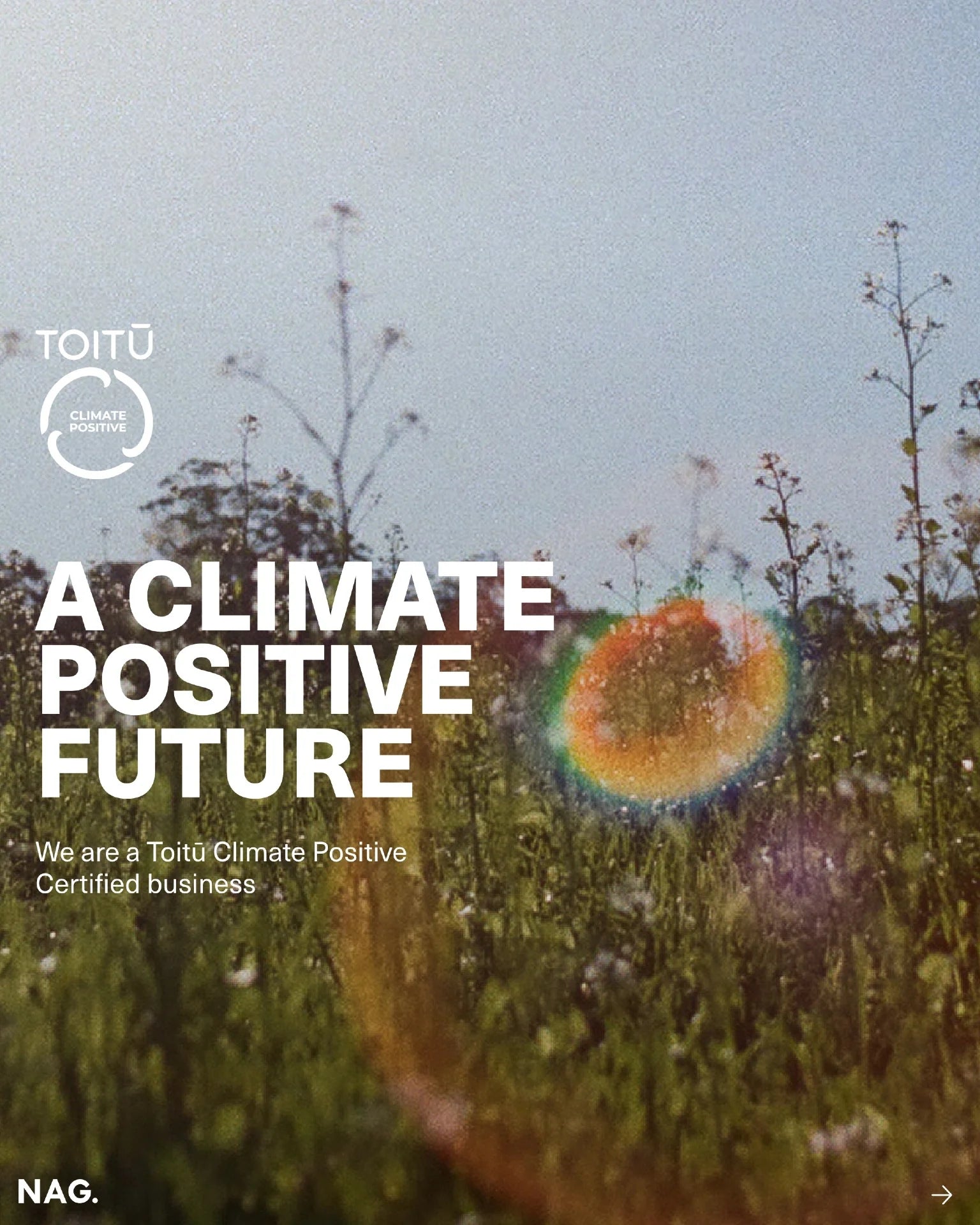


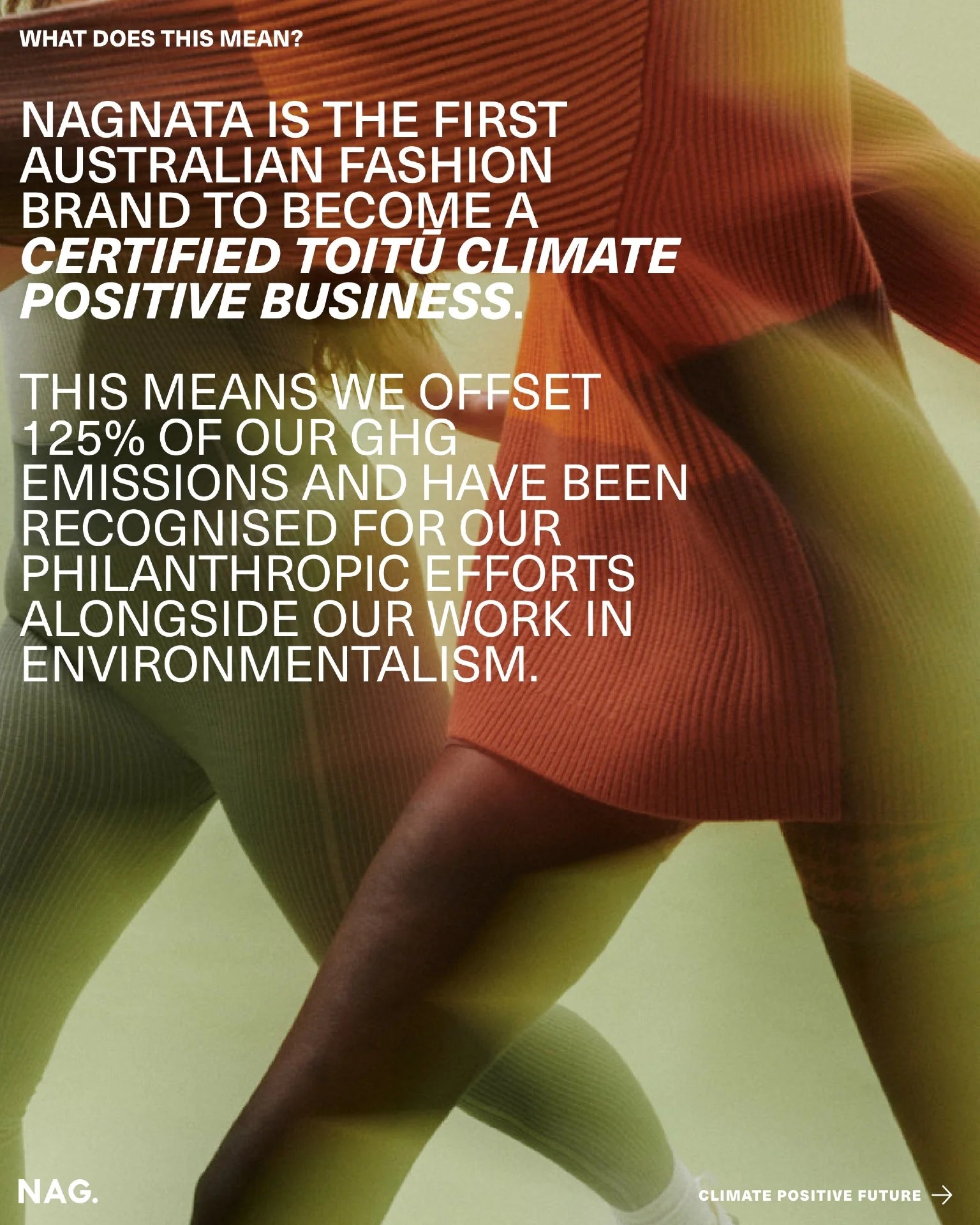
As we’d already begun taking significant proactive steps towards reducing our environmental impact as a business, we opted to tackle the most aggressive Toitū scheme to become a climate positive business. We announced this commitment last year at our Fashion Presentation held at Bangarra Dance Theatre in May and we are proud to have received the certification in February 2023.
The six-month intensive audit process reviewed all three GHG emission scopes to conclude that 383.23 tonnes of GHG emissions were generated during FY21-22.
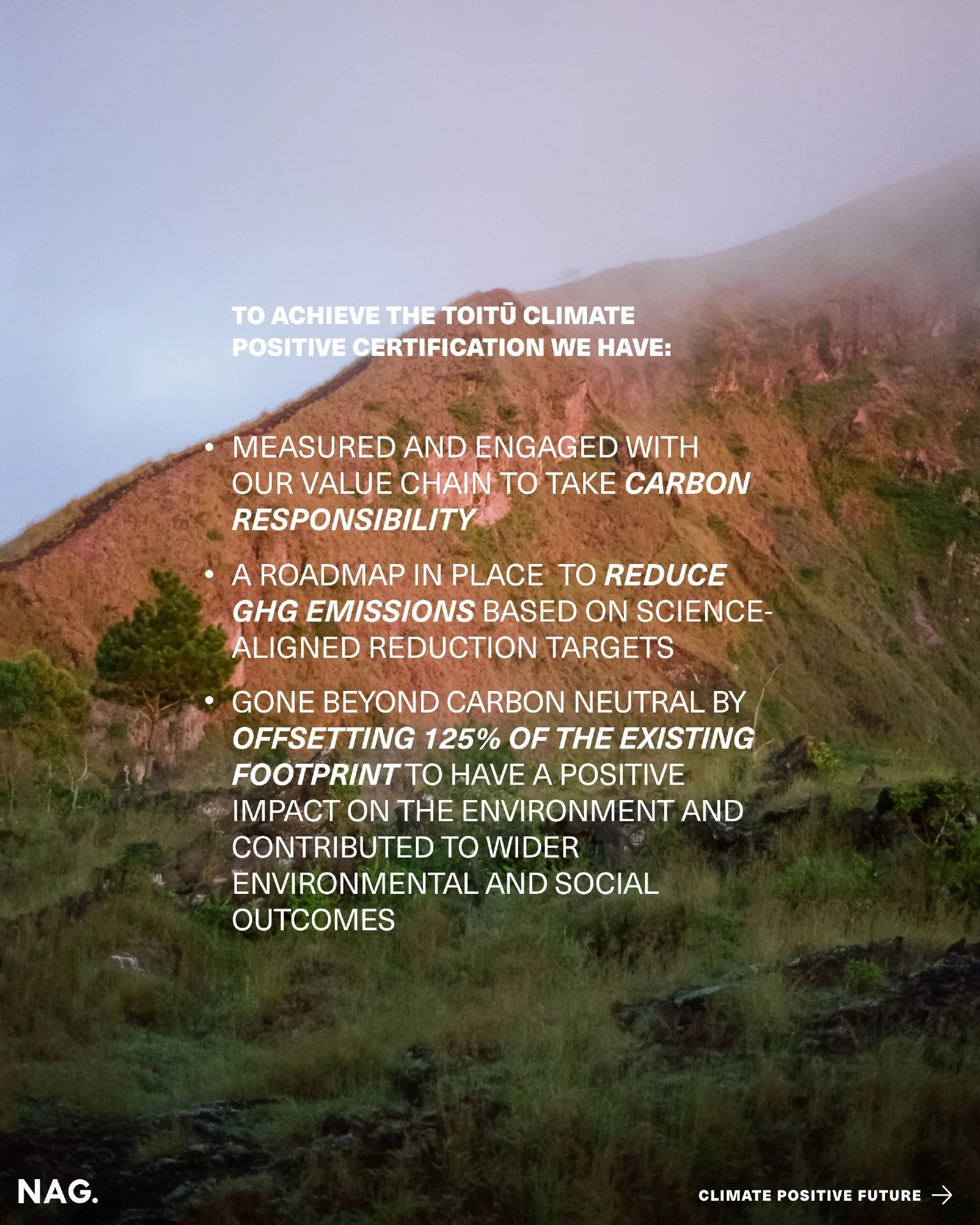
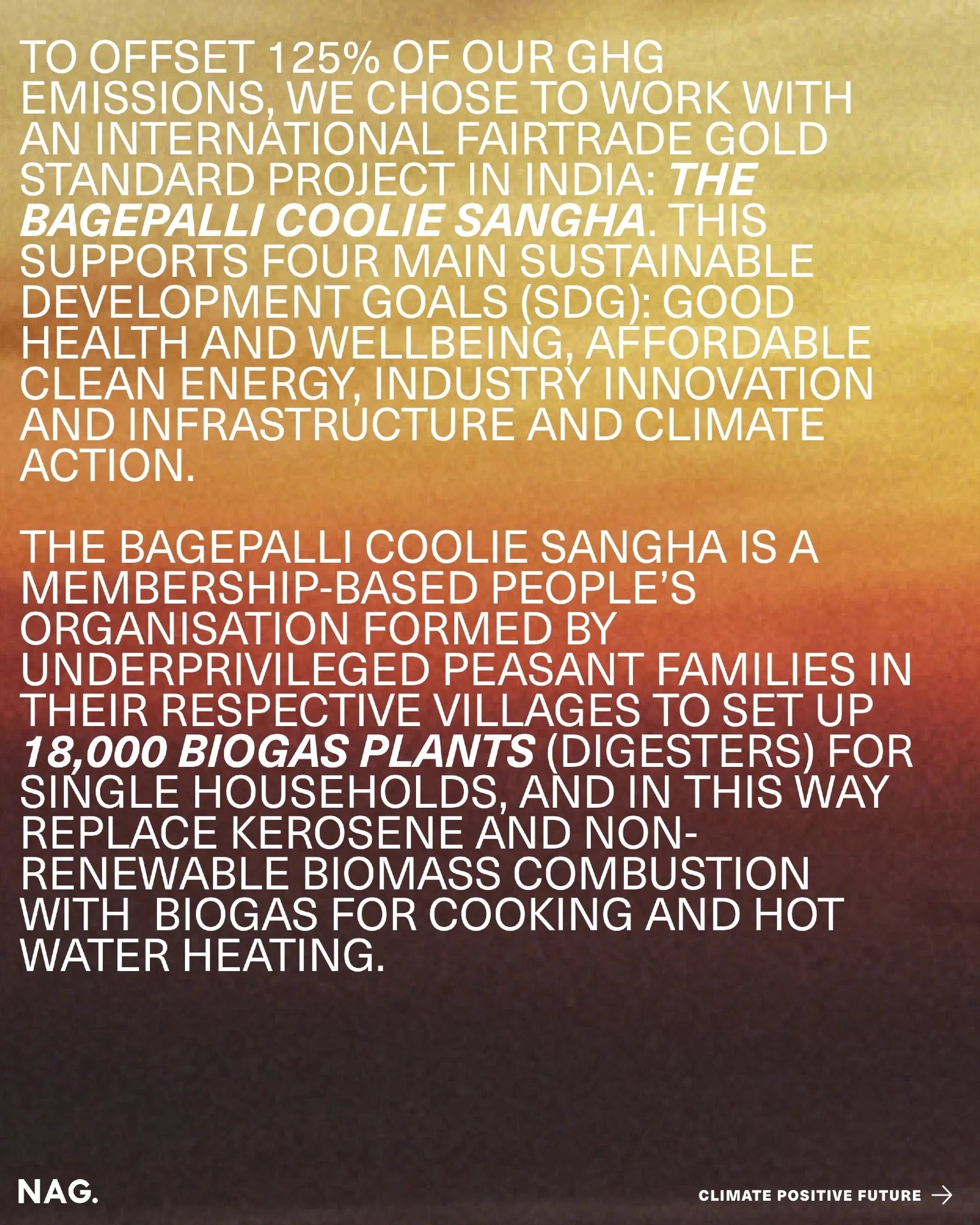
Scope 1 covers direct emissions from owned or controlled sources for example natural gas or transport fuels.
Scope 2 covers indirect emissions from the generation of purchased electricity
Scope 3 includes all other indirect emissions that occur in a company’s value chain.
To offset 125% of our GHG emissions, we chose to work with an International Fairtrade Gold Standard Project in India: the Bagepalli Coolie Sangha. This supports four main Sustainable Development Goals (SDG): good health and wellbeing, affordable clean energy, industry innovation and infrastructure and climate action.
The Bagepalli Coolie Sangha is a membership-based people’s organisation formed by underprivileged peasant families in India (landed and landless agricultural labourers) in their respective villages.
The purpose of project is to set up 18,000 biogas plants (digesters) for single households, and in this way replace kerosene and non-renewable biomass combustion with biogas for cooking and hot water heating. A biogas plant of two cubic metre capacity is sufficient to provide cooking fuel for a family of four to five people. Feedstock for the digestor is cow dung, organic waste and other biomass waste.
Co-benefits of this project also include; reduced health hazards from indoor air pollution (kitchen smoke), avoided health hazards associated with unmanaged waste in backyards and village streets, better waste management systems, avoidance of global and local environmental pollution and environmental degradation by switching from kerosene and non-renewable biomass to renewable energy.
